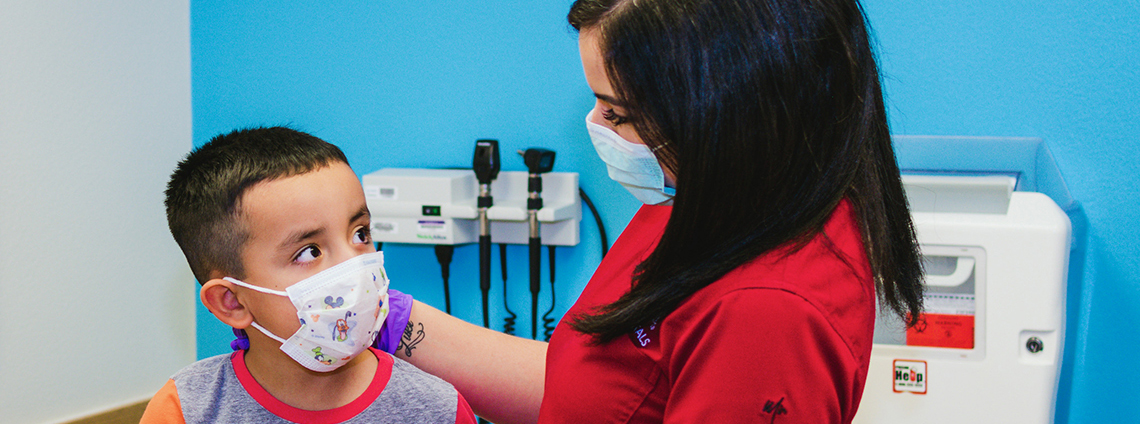New Mexico Approves Master of Science in Anesthesia Program at UNM

Sure Shot
UNM Participates in Study Finding Moderna Vaccine to be Safe for Young Children
The Moderna COVID vaccine has been found to be safe and effective when administered to young children following a national clinical trial in which University of New Mexico Health Sciences researchers played a part.
In a study published Nov. 3 in The New England Journal of Medicine, researchers reported that two doses of the mRNA-1273 vaccine were safe for children ages 6 months to 5 years of age and elicited immune responses comparable to those in young adults.
The KidCOVE study followed on earlier Moderna studies conducted with adults and teenagers. It enrolled thousands of children at 79 sites around the U.S. and eight sites in Canada who were divided into three cohorts: 6 to 11 years, 2 to 5 years and 6 to 23 months. The UNM arm of the study included the latter two groups.

[The vaccine] was very safe and very effective – the safety profile was very reassuring
“It was very safe and very effective – the safety profile was very reassuring,” said infectious disease specialist Walter Dehority, MD, MSc, an associate professor in the UNM Department of Pediatrics who served as principal investigator on the study.
Starting in August 2021 UNM researchers enrolled 124 children into the trial, Dehority said. The study was double-blinded, meaning some participants received placebo shots (although they were later offered the real vaccine).
The children underwent nasal swabs and multiple blood draws before and after the injections to gauge whether they developed protective antibodies. They were also followed for months afterward to determine whether the vaccine prevented COVID infections.
‘The kids were just phenomenal, and so many of them particularly the older ones, wanted to help,” Dehority said. “They were incredible troupers. They sat there for the blood draws and the nasal swabs – things that are not a lot of fun – and they did it.”
Participants were closely monitored for side effects in the first seven days after the injections. Parents kept e-diaries to monitor for symptoms, which typically included fatigue, irritability, slight fever and soreness at the injections site.
There were no serious symptoms in the children seen at UNM, Dehority said. “There was nothing that was not being seen at other centers. It was just sort of garden-variety stuff for the most part.”
UNM’s participation brought a high degree of diversity to the study. “We were one of the few sites that enrolled a significant number of Native American subjects,” Dehority said, noting that Native Americans are severely under-represented in most drug studies. “It’s extremely important to have diversity in clinical trial enrollment.”
Dehority is also a co-principal investigator on the ongoing $1.15 billion RECOVER (Researching COVID to Enhance Recovery) Initiative, funded by the National Institutes of Health to study so-called “long COVID” – a troubling array of symptoms that linger after a SARS-CoV-2 infection has cleared.
They may include fatigue, shortness of breath, “brain fog,” sleep disorders, fevers, gastrointestinal symptoms, anxiety and depression. Symptoms can persist for months, ranging from mild to incapacitating. In some cases, new symptoms arise well after the time of infection or evolve over time.
The studies will include a close review of medical records, as well as extensive diagnostic screening, such as blood tests and CT and MRI scans, to gather as much information as possible about each patient and their symptoms.
“It’s in some ways kind of a moonshot,” Dehority said of the study. “This is not something we see with other viruses.”
Dehority stressed the need to get up-to-date vaccinations to protect against infection. “You can’t get long COVID if you don’t get COVID,” he said. “If you get vaccinated that’s the best protection against COVID.”
While there are “breakthrough” infections even in fully vaccinated people, “It’s really good at keeping people out of the hospital and keeping them alive,” he said. In addition, “Some studies seem to suggest you’re significantly less likely to get long COVID.”